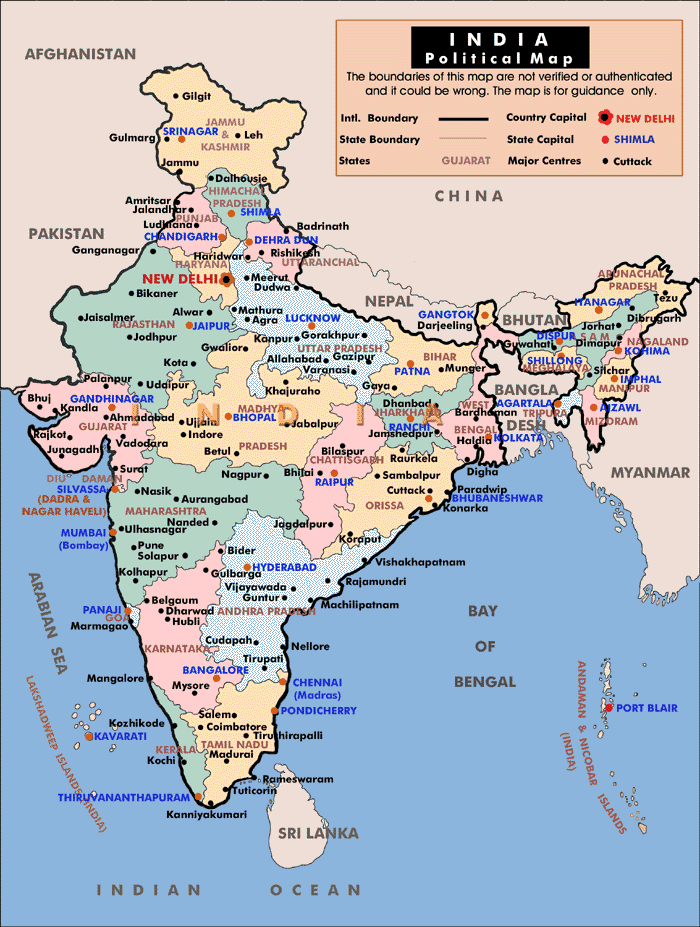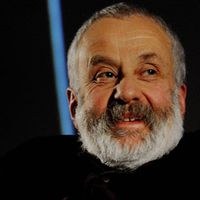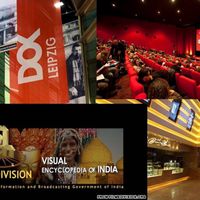Mapping Indian Film Festivals
 India is the largest film producer in the world, making about 1,200 features in 2007. It is the only place on the planet where Hollywood is small change, with barely 5% of the market. With a nation fiercely devoted to its own national cinemas, international film festivals are a crucial bridge between Bollywood, Indian cinema and world cinema.
India is the largest film producer in the world, making about 1,200 features in 2007. It is the only place on the planet where Hollywood is small change, with barely 5% of the market. With a nation fiercely devoted to its own national cinemas, international film festivals are a crucial bridge between Bollywood, Indian cinema and world cinema.International Film Festival of Kerala (IFFK):
First rate festival, artistic director Bina Paul Venugopal gets great films and guests. Kerala has the most fiercely cinema loving audience in India: rice farmers argue about Sergei Eisenstein. Pedro Almodovar retrospective thrives alongside New Malayalam (the state language) Cinema. Festival is in Thiruvananthapuram (formerly Trivandrum), in gorgeous, green, communist Kerala state, at India’s southern tip. Competition is for films from Asia, Africa and Latin America; there’s also documentaries and short fiction. In 2007 it drew 120 films from 40 nations and 6,000 delegates. It offers the Golden Crow Pheasant Award and cash prize of US$20,000 for best feature film.
www.iffk.keralafilm.com
Osian’s Cinefan Festival of Asian and Arab Cinema:
Absolutely first rate festival in India’s capital, New Delhi, that has just changed heads mid-stream. Founder-festival director, visionary Aruna Vasudev, quit this year; colleagues Indu Shrikent and Latika Padgaonkar took over. Boss Neville Tuli, owner of Osian’s art auction house and the film festival, is building Osianama in Mumbai (Bombay), a multi-arts complex due in 2009. Four competitive sections for Asian and Arab Cinema, Indian Competition, First Features Competition and In-Tolerance. Best Film gets US$ 50,000; Best Director US$ 20,000. Has held Talent Campus for aspiring filmmakers in collaboration with the Berlin Talent Campus.
www.cinefan.osians.com
Kolkata International Film Festival (KIFF):
Another festival in a highly cultured, cinema-literate state: the elevator boy would confidently discuss the finer points of Krszysztof Zanussi with the director himself. Nandan, the West Bengal Film Centre, runs the film festival. Great films, great adda (conversation). In 2007, it showed 250 films from 56 nations, and includes international documentaries and children’s films. Kolkata (Calcutta), is the capital of West Bengal, an avowedly communist state, like Kerala. Programming includes documentaries on Fidel Castro and a package based on Fyodor Dostoevsky’s novels.
www.kff.in
International Film Festival of India (IFFI):
One of the oldest, prestigious Indian film festivals, it is set in the lovely beach resort of Goa. Run by the government’s Directorate of Film Festivals, and the Entertainment Society of Goa, the festival clearly has the stamp of the government. All top staff quit; new director SM Khan joined two months before the festival rolls; Shankar Mohan, Senior Deputy Director, is manfully holding fort. Certainly includes some excellent films and high profile guests. Competitive section for Asian, African and Latin American films; highlight is the Indian Panorama, intended to showcase the best Indian features and non-feature films. Golden Peacock and generous cash prize of US$100,000 for best film; Silver Peacock and cash prize of US$38,000 for Most Promising Director.
www.iffi.nic.in
Mumbai Film Festival:
The festival was born in the crucible of Bollywood, in India’s film capital Bombay (Mumbai), but is international in outlook. Also called the MAMI festival, as it has so far been run by the Mumbai Academy of the Moving Image (MAMI) trust, with Sudhir Nandgaonkar as founder-festival director. But the buzz is that key sponsor Reliance Big Entertainment is ‘taking over’ the festival—it’s a big entertainment house with a multimedia presence, part of businessman Anil Ambani’s global empire. It showed 140 films from 45 nations in 2007, and has some excellent programming like Andrzej Wajda’s Katyn. Dimensions Mumbai is a short film competition for directors younger than 25 years: they had to make a 5 min film on the city.
www.mumbaifilmfest.com/
Third Eye Asian Film Festival:
Festival director Sudhir Nandgaonkar has successfully run both festivals for years.
It has two competitive sections—US$ 2,000 cash award for best first or second Asian feature, and cash prize of US$ 1,000 for best Asian Short (digital, 30 minutes). Festival screened 80 films from 20 Asian nations, including Tuya's Marriage (China; Golden Bear, Berlin 2007). Korean director Park Kwang-su was presented the Asian Film Culture Award. A Satyajit Ray package was easy pickings: but the tribute to the late playwright-screenwriter Vijay Tendulkar, was welcome. The Satyajit Ray Memorial Award went to P.K. Nair, ex-director of the National Film Archive of India, and mainstream glam got a nod by felicitating Aamir Khan, director of Taare Zameen Par, India’s entry for best foreign language Oscar, and Madhur Bhandarkar, national award-winning director of Traffic Signal. Organised by the Asian Film Foundation, the fest is supported by the state government.
www.affmumbai.com
Pune International Film Festival:
A cosmopolitan city four hours from Mumbai, Pune has an influx of international students and professionals, apart from being home to the Film and Television Institute of India and National Film Archives. The festival, headed by film director Dr Jabbar Patel, has a world competition. It offers cash awards of $20,000 for best feature film, $10 000 for best director and prizes for student films.
www.puneinternationalfilmfestival.com
Mumbai International Film Festival:
This one is exclusively for documentary, short and animation films. It is an excellent festival that has grown in stature. It is a biennial festival, once in two years, the next will be in 2010. Organised by Films Division, of the Ministry of Information and Broadcasting, in collaboration with the Maharashtra government. It recently moved to the National Centre for Performing Arts, a tony arts complex on the edge of the Arabian Sea. Best Documentary wins a Golden Conch and US$ 5,000, Second Best Documentary earns a Silver Conch and US$1,000 for two directors each.
www.miffindia.in
International Children’s Film Festival:
Organised by the Children’s Film Society of India, Ministry of Information and Broadcasting, this is also a biennial festival, once every two years, with the next one in 2009. The festival is held in Hyderabad, capital of the southern state of Andhra Pradesh, a former princely state, in which modern technology has made rapid inroads. Festival sections include International Competition, Asian Panorama and Retrospectives and includes some superb, highly underrated films. Festival director is Nafisa Ali Sodhi. The awards are not bad: top prize is the Golden Elephant and US$ 4,000; Silver Elephant and US$2,000 for second best live action fiction film; there are 15 awards in various categories including documentaries and animation.
www.cfsindia.org/festival
Bring Your Own Film Festival (BYOFF):
This refreshing festival, which has been held since 2004 on the beautiful Puri beach in Orissa, in eastern India, has impeccable logic. It cheerfully bumps off all hierarchy, competition, juries and awards. Not only filmmakers, but also artists from other fields like music, theatre, painting, sculpture, dance, literature and photography are encouraged to participate and show their work. It is an informal, intimate gathering of artists; films are shown in makeshift tents by day and in the open air after sun down, right into the wee hours. The idea is to have an alternative, democratic platform, away from the bureaucracy and big cities, and where just about anybody can participate. It’s like a magical carnival by the sea for five days and nights.
www.byofilmfestival.com
Meenakshi Shedde
Meenakshi Shedde is India Correspondent/advisor to the Berlin, Cannes, Venice, Toronto, Pusan and Hong Kong film festivals.
Similar content
deadline
30 Jun 2018
deadline
30 Jun 2017
posted on
17 Feb 2014
posted on
24 Feb 2012






